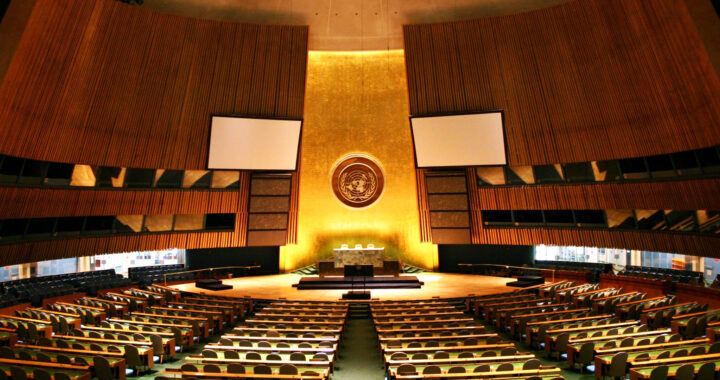The United Nations General Assembly convened in New York on 13 September 2025 to discuss the decades-long conflict between Israel and Palestine. In a decisive session, member countries voted overwhelmingly in favor of the New York Declaration, a resolution explicitly backing the establishment of a two-state solution.
New York Declaration: 142 Nations Overwhelmingly Voted in Favor of Two-State Solution for Israel-Palestine Conflict as Israel and the United States Oppose
Background on the U.N. General Assembly Resolution
The U.N. General Assembly gathered in response to escalating humanitarian and political crises following the October 2023 Hamas attacks and subsequent Israeli military actions in Gaza. Specifically, with tens of thousands killed and famine spreading, state actors sought a binding framework to address violence, humanitarian suffering, and political deadlock.
Note that the resolution is called the New York Declaration. It was co-sponsored by France and Saudi Arabia to set out a pathway for peace centered on recognition of Palestinian statehood. It highlights the disarmament of Hamas, protection of civilians, international acknowledgement of the sovereignty of Palestine, and urgent international humanitarian intervention.
Important Provisions of the New York Declaration
• Recognition of Palestinian Sovereignty: Urges all member-states to formally recognize the statehood of Palestine, acknowledging that the recognition is essential for a viable two-state solution and durable peace.
• Ceasefire and Governance Transition: Calls for a transitional administrative committee to oversee the Palestinian Authority assuming control across all Palestinian territories immediately following a ceasefire.
• End of Hamas Control and Influence: Requires Hamas to end its rule in the entire Gaza Strip, fully surrender its weapons to the Palestinian Authority, and release all remaining hostages without precondition.
• Deployment of UN-Supported Mission: Establishes an international mission tasked with civilian protection, safety guarantees, governance transition support, ceasefire monitoring, and peace agreement implementation.
• Denunciation of Violence on Both Sides: Explicitly denounces the October 2023 Hamas attack, while condemning Israeli attacks, blockades, and infrastructure destruction that caused famine and massive displacement.
• Opposition to Unilateral Engagements: Warns against illegal unilateral measures that undermine Palestinian independence, implicitly referencing ongoing Israeli settlement expansion and annexation initiatives.
• Deployment of Humanitarian Response: Demands immediate delivery of assistance or aid to Gaza, where over 64000 deaths and widespread famine highlight the catastrophic humanitarian toll of the conflict.
Voting Composition and Reason For Voting Against
The New York Declaration passed with broad support. 142 of the 193 member-states voted in favor of the resolution. These countries spanned Europe, Asia, Africa, and Latin America. Only 10 opposed and 12 abstained. Opposition came from Israel, the United States, and several allies, while abstaining nations included Albania, the Czech Republic, and Ethiopia.
Israel categorically disapproved of the declaration. Prime Minister Benjamin Netanyahu reiterated his opposition to Palestinian statehood. Israel has been asserting exclusive historical rights over the land. Israeli Ambassador Danny Danon denounced the resolution as biased, calling it a hollow gesture that diminishes the credibility of the U.N. General Assembly.
The United States also opposed the measure, labeling it a misguided and ill-timed publicity stunt. American diplomats argued the declaration undermines ongoing diplomatic efforts to secure a ceasefire and negotiate peace. The U.S. government insists that only direct negotiations between Israelis and Palestinians can realistically achieve a sustainable settlement.
Abstaining U.N. member-states, which include Albania, the Czech Republic, Ecuador, and Ethiopia, signaled reservations over enforceability and timing. The reasons behind their abstinence remain unknown, but it could stem from balancing international pressures, avoiding alienation of allies, skepticism over enforceability, and concerns about preempting negotiations.
